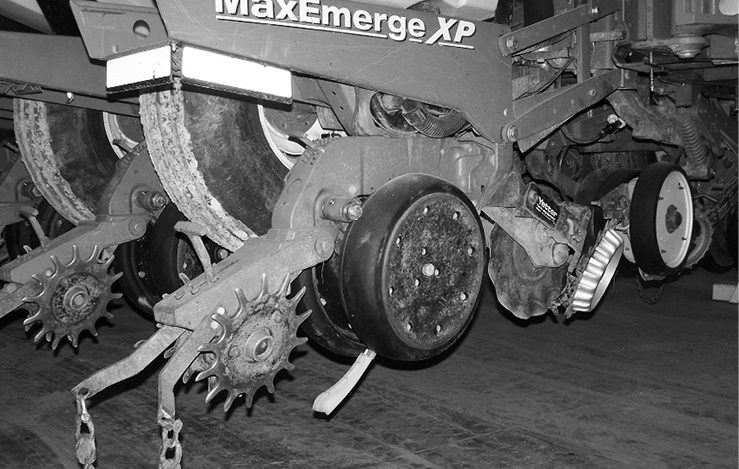No-Till Farmer
Get full access NOW to the most comprehensive, powerful and easy-to-use online resource for no-tillage practices. Just one good idea will pay for your subscription hundreds of times over.

NAME: R.D. Wolheter (Foxwood Farms, Inc., operated as a partnership with son, Neal)
LOCATION: Wolcottville, Ind.
YEARS IN NO-TILLING: 28
ACRES NO-TILLED: 3,000-plus
CROPS NO-TILLED: Corn, soybeans and, occasionally, wheat
There’s a lot of highly erodible land and many small fields in LaGrange County, Ind. Soil types range from blow sand and gravel to clay loams.
These diverse soils are a double challenge for Foxwood Farms. While the land is prone to water and wind erosion, many fields are also underlain with gravel. Some “stones” take a backhoe to remove.
With no-till, most stones go undisturbed and therefore stay below the surface and out of our way. That’s just one of the many benefits we get from no-till.
I joined the family operation in 1974 with my father and brother, Dennis, after graduating from Purdue University with a degree in agricultural education. I started my own farm in 1975.
It soon became apparent that if I wanted to expand acres and reduce labor and equipment costs — not to mention overcome the erosion and rock challenges — I needed to reduce tractor hours.
In 1981, I tried my first step away from tillage by renting a no-till corn planter from the Steuben County Soil and Water Conservation District. I liked what I saw and the next year purchased a John Deere six-row, 7000 no-till planter.

The planter had bubble coulters, which worked well, but I was getting sidewall compaction in heavier soils. Over the next…